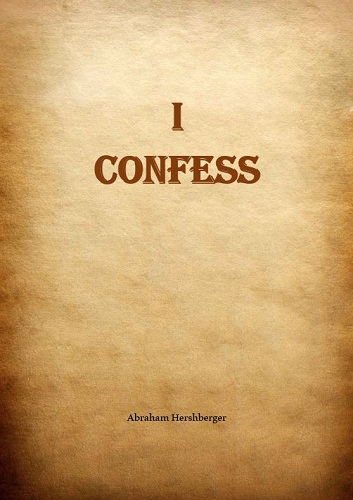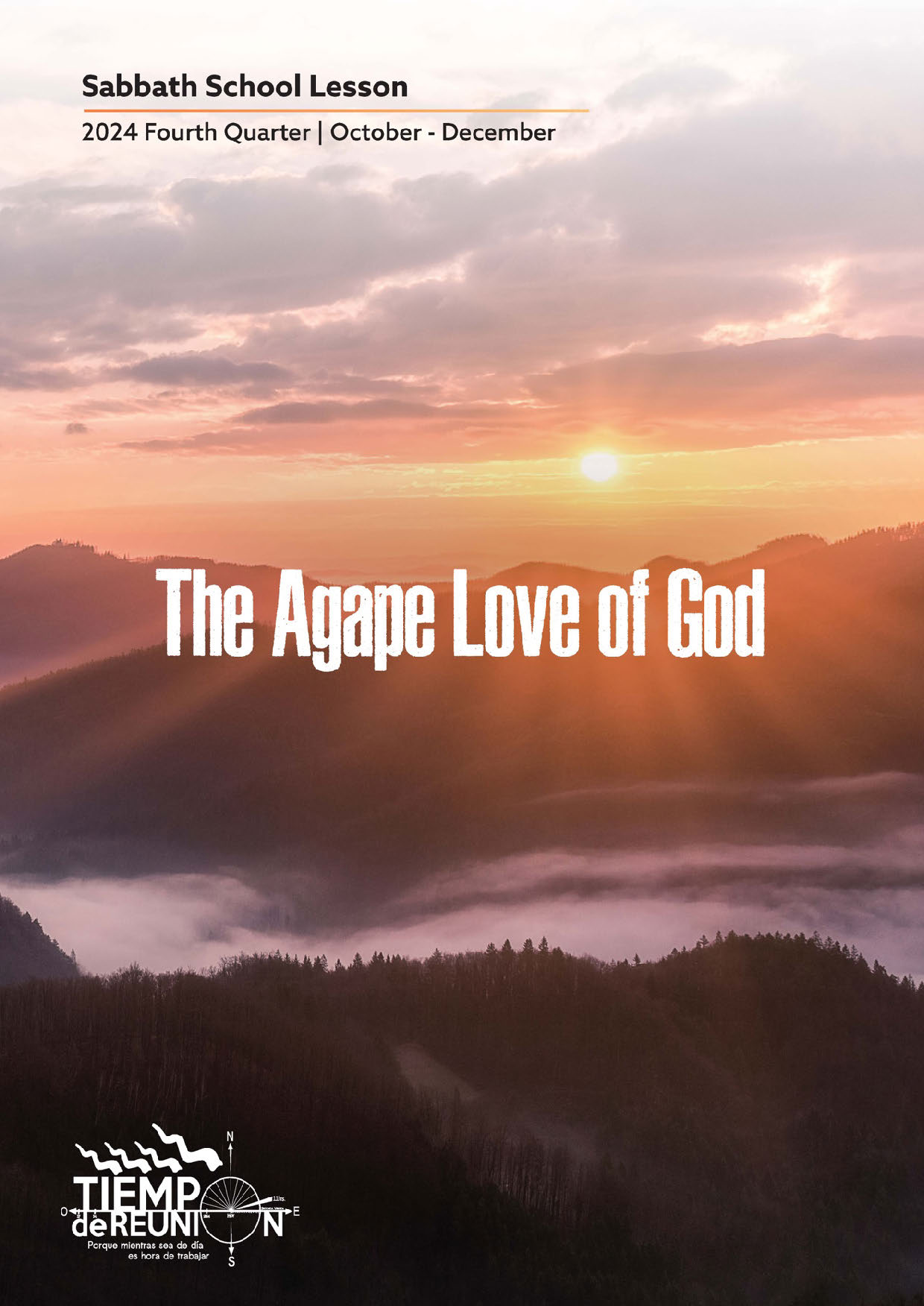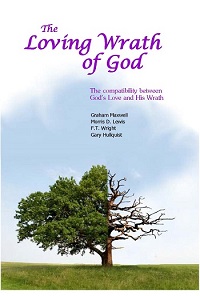What are we contemplating? Sodom and Lot's wife
Recently God has shed light into my life about his character and his love; I feel the seed of fear of a tyrant and vengeful God is disappearing, since God is not anything like that. What a joy to know that God is one hundred percent a loving God! The following quotes from the spirit of prophecy shed light on what the wrath of God is and how he executes his judgments.
I was shown that the judgments of God would not come directly from the Lord upon them, but in this way: They place themselves beyond His protection. He warns, corrects, reproves, and points out the only safe way; Of course, if those who have been the objects of his special care will follow their own course, independent of the Spirit of God, after repeated warnings; if they choose their own way, then he does not commission his angels to prevent Satan's decided attacks upon them. - {LDE 242.1}
It is Satan's power that is at work at sea and on land, bringing calamity and distress and sweeping multitudes to make sure of his prey.-Manuscript Releases 14: 3 (1883). - {LDE 242.2}
This is how the archenemy clothes the Creator and Benefactor of mankind with his own attributes . Cruelty is satanic. God is love, and all that he created was pure, holy, and lovely, until sin was introduced by the first great rebel. Satan himself is the enemy who tempts man and destroys him if he can; and when he has taken over his victim, then he exults in the ruin he has caused. If permitted, he would sweep the entire human race in his net. If it were not for the intervention of divine power, not one son or daughter of Adam would escape. - {GC 534.2}
We cannot know how much we owe to Christ for the peace and protection that we enjoy. It is the restraining power of God that prevents mankind from passing fully under the control of Satan. The disobedient and unthankful have great reason for gratitude for God’s mercy and long-suffering in holding in check the cruel, malignant power of the evil one. But when men pass the limits of divine forbearance, that restraint is removed. God does not stand toward the sinner as an executioner of the sentence against transgression; but He leaves the rejectors of His mercy to themselves, to reap that which they have sown. Every ray of light rejected, every warning despised or unheeded, every passion indulged, every transgression of the law of God, is a seed sown which yields its unfailing harvest. The Spirit of God, persistently resisted, is at last withdrawn from the sinner, and then there is left no power to control the evil passions of the soul, and no protection from the malice and enmity of Satan. The destruction of Jerusalem is a fearful and solemn warning to all who are trifling with the offers of divine grace and resisting the pleadings of divine mercy. Never was there given a more decisive testimony to God’s hatred of sin and to the certain punishment that will fall upon the guilty. – {GC 36.1} – GC 35-36
It’s inevitable then to question the language of the Bible that sometimes seems to say that God himself and directly does assume the attitude of an executioner or the plain language of the spirit of prophecy. Calvary in Egypt, by Adrian Ebens and The Loving Wrath of God, by various authors, two booklets on the subject, have shed much light regarding this topic and I think it provides enough information to understand how God works, although I cannot understand each case where the judgments of God are manifested. In light of these statements of the spirit of prophecy I have attempted to harmonize what happened to Sodom and Gomorrah. The Bible says it this way:
Gen 19:12 And the men said unto Lot, Hast thou here any besides? Sons, and your sons and your daughters, and all you have in the city, bring them out of this place;
Gen 19:13 For we will destroy this place, because the cry of them is waxen great before the Lord; Therefore the Lord has sent us to destroy it.
It would seem that the very angels who saved Lot would be directly responsible for destroying Sodom and Gomorrah. But consider this verse in Deuteronomy.
Deu 29:23 “And that the whole land thereof is brimstone and salt, and burning; that it is not sown, nor beareth, nor any grass grows therein, as in the destruction of Sodom and Gomorrah, Admah and Zeboim, which the LORD overthrew in his anger, and in his wrath:”
The NIV puts it this way:
Deu 29:23 “All will be a burning waste of salt and sulfur-nothing planted, nothing sprouting, no vegetation growing on it. It will be like when the Lord in his anger destroyed the cities of Sodom and Gomorrah, Admah and Zeboim.
This verse speaks of the destruction of Sodom and Gomorrah. When he says: "... As in the destruction of Sodom and Gomorrah ..." the Hebrew word majpéket is used, and according to Strong's H4115 it means violent tug. That this happened with these towns is undeniable, definitely these cities were violently destroyed. The question is whether God directly carried out such violence.
The next time that the verb destroy is used it is referring to what God made directly. When the verse says: "... which the Lord overthrew in his anger and in his wrath," the word used in Hebrew for overthrew (destruction), this time is different from the previous one. Had Moses wanted to give the same meaning as in the previous term, why not use the same word. The word used this time in relation to God is jafák which according to Strong's H2015 can mean turning, flip or turn your back. This is the same word used in Genesis 19:25 in the story of the destruction of Sodom and Gomorrah. Giving this meaning, what really happened was that these cities were abandoned by God, not that God was sick of them and destroyed them directly. This harmonizes with the knowledge that God is love and that His judgments are to leave the persistent sinner to his fate, even against what God desires. In other words, what happened to Sodom and Gomorrah by God was similar to what happened with God and Christ on the cross; Father turning his face and leaving the life of his Son in the hands of the destroyer to drink the cup unmixed with mercy. That's what God's wrath is.
On the other hand, Deuteronomy 29: 23 mentions that Admah and Zeboim received the same judgment that Sodom and Gomorrah. These four cities are grouped as recipients of the wrath of God in the same way (according to the Hebrew for anger, af-strong's H639- means agitated breathing). When he says: ... as in the destruction of Sodom and Gomorrah, Admah and Zeboim, it is implied that these four cities were destroyed in the same way. With this in mind we know how it was that these cities were destroyed and what the role that God played in their destruction was. Let see Hosea 11: 8 “How shall I give thee up, Ephraim? How shall I deliver thee, Israel? How shall I make thee as Admah? How shall I set thee as Zeboim? Mine heart is turned within me, my repentings are kindled together.”
This verse sheds much light on the character of God and his role in the destruction of cities; in this case Admah and Zeboim. What happened to these cities? The verse shows that they were abandoned and given up by God; precisely what God does not want to do with Ephraim, with Israel. When God says, "How can I give you up, Ephraim? How shall I deliver thee, Israel? How can I make you like Admah or as Zeboim? "He is saying He does not want to give Israel up to the destroyer just as He did with Admah and Zeboim.
We can ask some questions that will help us better understand and clarify the verse and its relation to the destruction of Sodom and Gomorrah. What is it that God does not want to do to Ephraim? Leave it and deliver it. Who suffered such a fate? Admah and Zeboim. If we read the verse as a statement instead of a question it might say, I do not want to abandon Ephraim; I do not want to give up Israel. I don’t want you to end up as Admah and Zeboim. Thus, the verse becomes clearer. Going back to Hebrew, the word used to refer to what happened to Admah is Nathan, meaning: abandon, surrender (Strong's H5415), the same word used in relation to what God doesn’t want to do to Ephraim. With this in mind the verse could read: How can I give you up, Ephraim? How shall I deliver thee, Israel? How can I give you up like Admah or as Zeboim? My heart is turned within me, my compassion is aroused.
It is clear that what happened to Admah and Zeboim was that they were abandoned and given up by God. Notice that the verse does not say destroyed, but abandoned, again agreeing with the interpretation of God's wrath as a difficult act for him to do by letting go of the object of his love. This is consistent with the meaning of Jafák (to turn his back) in Deuteronomy 29:23 and is consistent with the description the spirit of prophecy makes on the judgments of God.
Summarizing, according to Deuteronomy 29:23 Sodom and Gomorrah, Admah and Zeboim suffered the same fate of being delivered, abandoned to the enemy; what happened to the first two happened to the other two cities. Hosea 11: 8 is another witness that shows us what happened to Sodom and Gomorrah, because it clarifies what happened to Admah and Zeboim who suffered the same judgments of God as them. Hosea 11:8 tells us the Admah and Zeboim were abandoned. If Sodom and Gomorrah suffered the same judgments of God Admah and Zeboim, then what happened was an abandonment of these cities. Humans choose whom to serve and God respects our free will and what kingdom we choose to belong to. It is with immense grief and shock, with trembling, sweat and with agitated breathing (see the last part of Hosea 11:8) that God works his strange act abandoning the sinner to his fate, to step aside and let the Destroyer work destruction. For more information on this see God's Strange Act by Adrian Ebens at maranathamedia.com
Lot's wife
Understanding what happened to Sodom, we can draw some lessons regarding what happened to Lot's wife. In Genesis 19:17 Lot and his family received very clear instructions for their own benefit.
Gen 19:17 “and when they had brought them outside, he said, Escape for thy life; look not behind thee, neither stay in all the plain; Escape to the mountains, lest you perish.”
Sometimes we think God's instructions are difficult to meet. As we are at enmity against him and his law, we see his commandments as unjust. Maybe one can think that it is a normal human reaction when one hears a loud noise, to look and see what happened. So we can think it's an accidental movement of the body. But in the case of the instruction given to Lot and his family, “look not” meant more than that. The Hebrew word used is Nabat according Strong's H5027 to say: look, look intentionally; consider with pleasure, favor or attention. The order meant much more than looking or accidentally seeing what was happening to the cities of the plain; it involved a careful and deliberate observation, considering the city, with kindness and pleasure.
Understanding that God's commands are not arbitrary or selfish, but they are given for our benefit and are the only sure way to be protected from the destroyer, we understand better what happened to Lot's wife. In Genesis 19:26 we are told that Lot's wife looked (Nabat) toward Sodom and was turned into a pillar of salt (Hebrew implies that turned into a material that grinds up). But as we have seen, the act did not consist only in looking, but to do it intentionally, carefully considering the city that gave her pleasure. According to 2 Corinthians 3: 17, 18 we are transformed into the image of what we contemplate; Lot's wife had learned to contemplate with pleasure at Sodom and was gradually transformed into the image of such society. Her heart, her love, her pleasure, her treasure was in Sodom. When God gave the order not to look, he was protecting Lot and his family from the destroyer. The enemy is the tempter who works to make us fall, and when he succeeds, he accuses us, because he is the accuser, and then he claims us as his. Thus, God tried to protect Lot’s family from the destroyer, but his wife, looking (Nabat) toward Sodom made it clear where her treasure was, which kingdom she wanted to belong to, and to whom she gave sovereignty of her life. She made an open statement that her pleasure and delight was that city that now was receiving the judgments of God; by living under the kingdom of the enemy, she saw God as an unjust tyrant who destroyed what she loved most. Her life, her heart, was at enmity with God, His character and His law. She didn’t moan and cry for the abominations perpetrated there.
Eze 9: 4 “And the Lord said unto him, Go through the midst of the city, through the midst of Jerusalem and set a mark upon the foreheads of the men that sigh and that cry for all the abominations that be done in the midst thereof.”
Her disobedience was the visible manifestation of her rebellion against God. She missed the last chance she had of being protected by God through His law. Like Adam, she chose to perish with the object of her love; as there was no denial of self in her life, she could not deny herself, even in her last chance. She became sodomite in every way, and as such belonged to the destroyer, who reigned there. The Spirit of Prophecy says:
While her body was upon the plain, her heart clung to Sodom, and she perished with it. She rebelled against God because His judgments involved her possession and children the ruin. Although so greatly favored in being called out from the wicked city, she felt that she was severely dealt with, because the wealth that it had taken years to accumulate must be left to destruction. Instead of thankfully accepting deliverance, she presumptuously looked back to desire the life of those who had rejected the divine warning. Her sin showed her to be unworthy of life, for the preservation of which she felt so little gratitude. - {PP 161.2}
How sad that until the end Lot's wife had a chance, but rejected God’s mercy! In summary, God wanted to spare Lot and his family from the destroyer and gave them commandments to protect them from the accuser and destroyer; while the destroyer was doing his work, Lot's wife, who was delighted to see the wickedness of Sodom and whose heart had become like the city, manifested whom definitely she belonged to, and by contemplating her beloved city, she disobeyed God’s commandment (her only protection). The destroyer could claim her as his own, and God knowing that she had closed all doors to Him, could no longer protect her.
The root of the destruction of Lot's wife was contemplating Sodom in her everyday life. That led her to be formed according to that city. Her disobedience was only a manifestation of the love of evil, for the things of this world. Similarly, we are taking a huge risk by investing our time contemplating Babylon; we can become transformed into the same image, to love and to belong to the kingdom destined for destruction.
1 John 2:15 “Love not the world, neither the things that are in the world. If anyone loves the world, the love of the Father is not in him.”
1 John 2:16 “For all that is in the world, the lust of the flesh, the lust of the eyes, and the pride of life, is not from the Father but from the world.”
1 John 2:17 “And the world passeth away, and the lust thereof but he who does the will of God abides forever.”
Every second we lose contemplating the world, is a second less we have to be transformed into the image of Christ. Let it be movies and the whole machinery of Hollywood; sports’ battle of egos and manifestations of idolatry by their fans; music and anything related to the entertainment world; all these things designed to distract us and entertain us (the root of the word entertain is to keep us within something) serve the purpose to amaze, seduce and transform us into perfect citizens of the kingdom of the enemy.
What are you contemplating? How do you spend your time? Where is your mind? Where is your treasure?
We can choose to discard the mundane, everything perishable, everything that represents the principles of exaltation of self, all of the enemy and his kingdom; if it is something that is not going to be in Heaven, begin rejecting it now. Let us pray to God, and ask Him in the name of Jesus, and he will give us the faith of Jesus that will cleanse our lives, refine our tastes and make us perfect inhabitants of his kingdom, now.
Php 4: 8 “Finally, brethren, whatsoever is true, whatsoever is honest, whatsoever is right, whatsoever is pure, whatsoever is lovely, whatsoever is of good report; if there is any virtue and if there be any praise, think on these things.”





